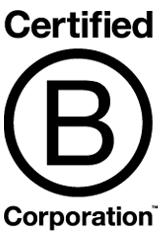Legal structures that support social responsibility as a key company mission are spreading rapidly. L3Cs and Benefit Corporations are being offered by more and more states as alternatives to the traditional C-Corp or LLC. And, the B Corp, a certification rather than a legal structure, has already been adopted by 444 US companies.
The L3C structure is for companies that run for-profit businesses, but have a social mission. Some call them “for-profits with a non-profit soul.” They are recognized in eight states, including Maine and Wyoming. Roughly 430 L3Cs are already in existence.
The Benefit Corporation is a structure that makes a company’s leaders legally responsible for considering employees, suppliers, communities, consumers, and the environment, as well as shareholders, in decisions. Five states currently recognize Benefit Corporations. Nine more, including California, have legislation in process.
Finally, a company can become a certified B Corp. This is not a legal status, but it requires extensive assessment of the company’s social and environmental performance by B Lab. The number of B Corps grew 75% between 2009 and 2010, and over 3,100 companies now use B Lab’s impact assessment tools. High profile B Corps include Seventh Generation, Guayaki, and Numi Organic Tea.
What are the benefits of backing up a social mission with a legal commitment or certification? Increased profits is business owners’ first response.
We should think about...
- Should we use the B Lab’s impact assessment tools to learn more about our business’ footprint?
- Should we consider becoming a B Corp or using a legal structure that supports our social mission?
If you need help with strategic planning that incorporates social responsibility, please give Brandology a call at 925-417-2253. We are experts at developing and executing strategic and tactical business plans that drive results.





